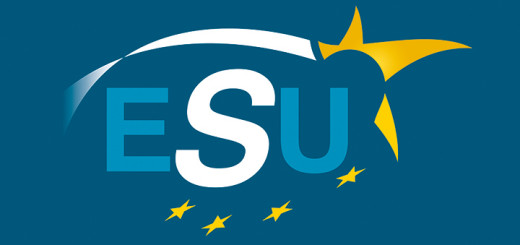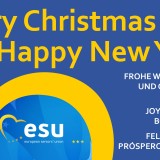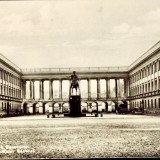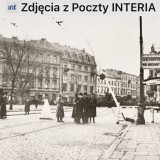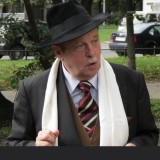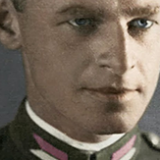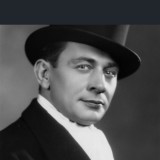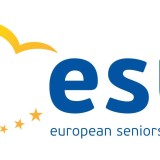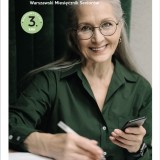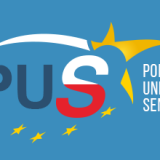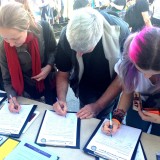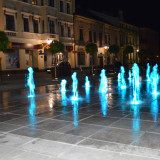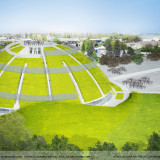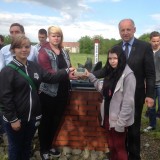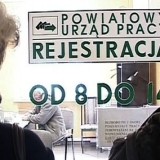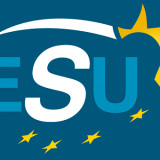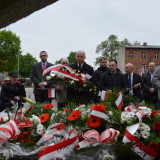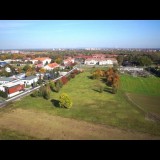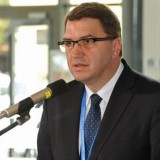Newsletter ESU 126
EUROPÄISCHE SENIOREN UNION (ESU)
Newsletter „SENIOR INTERNATIONAL“ Ausgabe Nr. 126 Dezember 2015
Österreich: Terror fordert uns heraus!
Im Ergebnis einer Diskussionsrunde des Seniorenbundes zu Asylpolitik und anderen aktuellen Ereignissen Mitte November in Wien stellte ÖSB – Bundesobmann (Vorsitzender) Prof. Dr. Andreas Khol im Bulletin “SIS“ fest: „Gegenüber dem Terror kann man nicht neutral sein ! Das europäische Lebensmodell, die europäischen Werte der Demokratie und Freiheit müssen mit allen Mitteln verteidigt werden.“ Khol nahm damit auch Bezug auf die Meinung seiner Gäste: Außenminister Andreas Kurz und Bundeskanzler a.D. Dr. Wolfgang Schüssel, der für klare Worte bekannt ist. Vor den 150 Besuchern der Veranstaltung habe er gesagt, man dürfe nicht fragen: „Wie liege ich?“, sondern „Wofür stehe ich?“. Dieser Tage erschien sein Buch: „Das Jahrhundert wird heller. Begegnungen und Betrachtungen“. 224 Seiten, 19.95 €. ISBN 978-3-99050-017-0
Gedankenaustausch
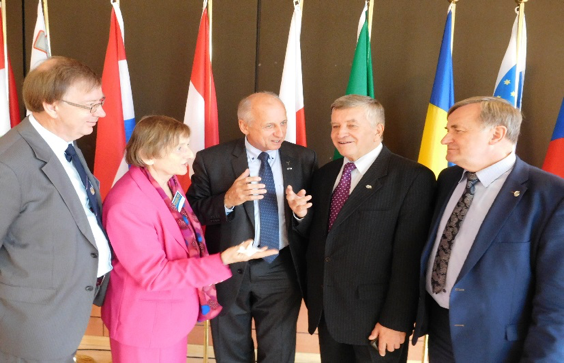
Ein Höhepunkt für die Europäische Senioren Union im zu Ende gehenden Jahr war ihre Veranstaltung zum 20jährigen Bestehen am 6. November in Brüssel. Sie gab auch den Delegierten aus Polen Gelegenheit zum Gespräch über gemeinsame Projekte. Für Ireniusz Skubis (2.v.r.), den neuen Vorsitzenden der Parlamentariervereinigung, war es eine Premiere. Weiter im Bild (von links): Sean und Margit Hawkes, Mitglieder des Exekutivkomitees der Polnischen Senioren – Union (PUS) und Übersetzer dieses Newsletters in die englische Sprache; Janusz Marszalek, PUS-Vorsitzender und ESU-Vizepräsident; ganz rechts: der zweite Repräsentant der Parlamentariervereinigung , die sich jetzt auch für die Abgeordneten und ehemaligen Abgeordneten der Parlamente auf Woiwodschaftsebene (Sejmiks) öffnen will. Ihre Partei, die PSL (Polnische Bauern- oder Volkspartei) ist seit dem Regierungswechsel in der Opposition.
Deutschland (Bayern): Bleibeberechtigte in Arbeit bringen
Die Landestagung der CDU-Senioren-Union („SEN“) am 10. Oktober in Friedberg galt dem 20. Jahrestag des Bestehens und der aktuellen Asyl- und Flüchtlingspolitik. Lt. Newsletter vom November äußerte sich der Vorsitzende Dr. Thomas Goppel vor den Delegierten zu den Grundpfeilern seiner Politik. Dies sind: Bewahrung des christlichen Menschenbildes, neue Schubkraft für die Soziale Marktwirtschaft und Sozialstaat für alle Generationen. Markus Ferber MEP stellte „Risse im Haus Europa“ fest und äußerte sich kritisch zum Mangel an praktischer Solidarität einiger Länder. Staatsministerin Emilia Müller forderte, Verfolgte zu schützen und Missbrauch zu unterbinden. Diese „größte Herausforderung seit der Wiedervereinigung“ sei nur durch eine „langfristige und nachhaltige Asylpolitik als gesamtgesellschaftliche Aufgabe“ zu lösen. Sie teilte mit, dass mit der bayerischen Wirtschaft eine Initiative „Integration durch Ausbildung und Arbeit“ vereinbart wurde, von der (bis 2019) 60.000 Flüchtlinge mit Bleibe-Perspektive profitieren werden.
Belgien: Gespräche mit ukrainischen jugendlichen
Vom Robert-Schuman-Institut Budapest eingeladen, besuchte am 18. November eine Gruppe politisch engagierter Jugendlicher aus der Ukraine die europäische Hauptstadt, die noch unter dem Eindruck des Terroralarms stand. Die Gäste informierten sich über die Arbeitsweise der Europäischen Volkspartei (EVP/EPP) und des Europaparlaments. ESU-Präsidentin An Hermans erläuterte den Gästen, was ihr die Bewahrung der europäischen Werte – auch im Rahmen der Östlichen Partnerschaft – bedeutet.Bei einem Rund-Tisch-Gespräch mit der IDEA ging es um die Demokratie und den Dialog zwischen den Generationen. – Am 10. und 11. Dezember tritt die Politische Versammlung (Political Assemble), das Leitungsgremium der EVP, zu ihrer ersten Sitzung nach dem Wahl- Kongress in Dublin zusammen, woran die ESU-Präsidentin teilnimmt.
Polen: Partnerschaft mit „Universität der 3. Lebensphase“
Die Polnische Senioren-Union (PUS) hat mit der Vereinigung der „Universitäten der dritten Lebensphase“ (poln. UTW) am 20. November eine Vereinbarung getroffen. Sie trägt die Unterschrift des PUS-Präsidenten Janusz Marszalek und der Vereinigungsvorsitzenden Krystyna Lewkowicz. Die Zeremonie fand in Anwesenheit zahlreicher Universitäts- und Hochschulprofessoren in der Aula Collegium Novum der Krakower Jagiellonen-Universität statt. Es war der Höhepunkt einer Konferenz „Bildung und Aktivität – beste Methoden gegen Ausgrenzung“. Die Vereinbarung sieht gemeinsame Initiativen für das bürgerschaftliche und gesellschaftliche Engagement älterer Bürger vor. Es geht um Bildung, Kulturerlebnisse und die Förderung des Selbstbewusstseins. Dazu sind Seminare und Konferenzen geplant. Die internationale Zusammenarbeit ist den Partnern weiter wichtig. -„Universitäten der dritten Lebensphase“ bestehen in Polen seit 40 Jahren. Sitz ihrer gesamtpolnischen Vereinigung ist Nowy Saz /Neu Sandez nahe der Grenze zur Slowakei, eine 74 000 Einwohner zählende Stadt, die reich an Baudenkmälern ist; sie wurden nach dem Krieg mit Bedacht wiedererrichtet. Bewohner hatten 1942 ein Denkmal des Königs Wladylaw Jagiello vor den Nazis versteckt. Kontakt: federacjautw@interia.eu
Litauen: “Schule und geschichtliches Erbe“
Dieses war am 18. November das Thema einer Konferenz in der litauischen Hauptstadt Vilnius. Einge- laden hatte der ESU-Mitgliedsverband mit der Parlaments-Fraktion der Partei VaterlandsUnion/Christdemokraten. Über 100 Abgeordnete, Repräsentanten des Bildungsministeriums, Wissenschaftler und Pädagogen waren in den Seimas gekommen, wo sie von dessen Vizepräsidentin, Irena Degutiené, und dem Vorsitzenden des Seniorenverbandes, Zibartas Jackunas, begrüßt wurden. Mehrere Redner stellten fest, dass sich die Lehrpläne seit Erlangung der Unabhängigkeit Anfang der 90er Jahre grundlegend verändert hätten ( übrigens auch in weiteren ehemaligen Sowjetrepubliken).Woran es aber mangele, das sei die Verbindung des Geschichtsunterrichts mit „der Stärkung der patriotischen Einstellung junger Menschen gegenüber ihrem Heimatland“, wie es in einer Mitteilung aus Vilnius heißt. Zudem bemängelte Universitätsprofessor Aloydas Jajubaitis, dass „die liberale Philosophie in vielen europäischen Gesellschaften der Gegenwart“ dazu neige, „die Geschichte zu privatisieren“. In einer Resolution forderten die Konferenzteilnehmer, die historischen Erinnerungen als „Anker für Erziehung und Bildung“ zu verstehen.
Vor Konferenzbeginn verharrten die Teilnehmer in einer Schweigeminute zu Ehren der Terror-Opfer von Paris und an anderen Orten. – Das litauische Fernsehen hat über die Konferenz ausführlich berichtet.
Deutschland: Franz Müntefering an der BAGSO-Spitze
Der ehemaligen Bundesminister wurde am 25. November für drei Jahre gewählt. Seine Stellvertreter sind Prof. Dr. Ursula Lehr, seine Vorgängerin im Amt seit 2009, und Michael Griffig. Zu den 13 Millionen Seniorinnen und Senioren in 113 Mitgliedsverbänden, die von der BAGSO vertreten werden, gehört die Senioren-Union der CDU und der CSU. Müntefering will sich für bessere Chancen zur gesellschaftlichen Mitwirkung der Älteren einsetzen.
ESU: Terminvorschau für 2016
Februar: Sitzung des Präsidiums
29. April: Europäischer Tag der Solidarität zwischen den Generationen
Mai: Regionalkonferenz in Budapest
1./2 Juli: Sommerakademie für Führungskräfte in Wien
1.7.: Präsidium; 2.7.: Exekutivkomitee
Herbst: Regionalkonferenz in Ljubljana
November: Wahlkongress der ESU in Leuven
Versöhnung konkret
.Das Menschenrechtszentrum in Cottbus (DE) wird in die Nagelkreuzgemeinschaft von Coventry aufgenommen. Aus diesem Anlass findet am 10. Dezember, dem Internationalen Tag der Menschenrechte, auf dem Gelände des ehemaligen Nazi- und Stasi- Zuchthauses ein Gottesdienst mit
Bischof Dr. Dröge statt. Die Verleihung des Nagelkreuzes nimmt Dr. Sarah Hills aus Coventry vor.
.Vor 50 Jahren, exakt am 18.November 1965, streckten die katholischen Bischöfe Polens ihren deutschen Amtsbrüdern die Hand zur Versöhnung aus. In einem Brief, der während des II. Vatikanischen Konzils überreicht wurde, hieß es: „Wir vergeben und bitten um Vergebung.“ Diese Friedensgeste wurde damals teils begrüßt und teils heftig kritisiert – in beiden betroffenen Ländern. Längst gilt das Dokument als ein wichtiges Zeugnis der Versöhnungsbereitschaft nach dem Vernichtungskrieg der Nazis. Kardinal Marx hat am 22. November dieses Jahres in einer Gedenkmesse in Czestochowa dankbar daran erinnert.
. „Sorauer Land – Ziiemia Zarska / aktuell und historisch“ ist der Titel eines Newsletters, den der Redakteur seit September herausgibt. Das Nachrichten-Bulletin informiert polnische und deutsche Bürger, die unweit der Lausitzer Neiße, des Grenzflusses seit 1945, wohnen. „SZ“ schreibt über Begegnungen, Kooperationen, Freundschaften über die Landesgrenze hinweg und möchte zur weiteren Aussöhnung beitragen. Von Interesse erweist sich der Newsletter auch für ehemalige deutsche Bewohner des Landkreises Sorau (jetzt Zary) und der näheren Umgebung (Lebuser Land). Ab sofort erscheint „SZ“ in beiden Sprachen. Recherche, Redaktion, Übersetzung (durch einen Muttersprachler) und Versand (per E-Mail) erfolgen ehrenamtlich.
Das Letzte
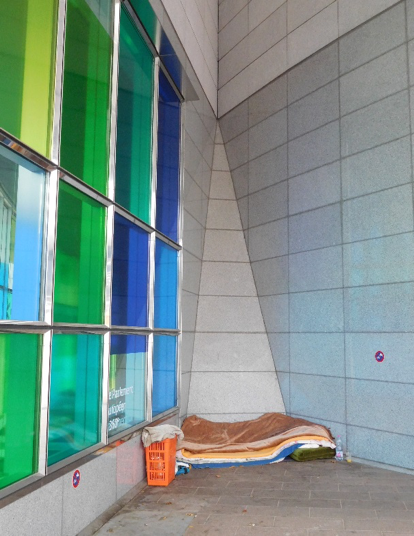
Das Letzte – nicht nur dieser Ausgabe, sondern auch an Menschenwürde, meint der Redakteur.
Solange es nicht gelingt, der Obdachlosigkeit Herr zu werden,, wird Politik ihrer Verantwortung nicht genügend gerecht. Dieser Schlafplatz befindet sich unter dem neuen Arkadenbogen des Europäischen Parlaments in Brüssel und bietet wenigstens von drei Seiten etwas Kälteschutz. Abgeordnete und weitere Mitarbeiter gehen vom Place du Luxembourg kommend fast täglich dran vorbei. Haben sie sich an den Anblick gewöhnt?
Papst Franziskus sagte an einem dieser Adventstage:
„Die Würde der menschlichen Person bedeutet,
für die Würde des Mitmenschen zu arbeiten.“
(Zitiert nach Berliner Morgenpost v. 3 Dez.2015)
_______________________________________________________________________________
Redaktion: ulrich.winz@web.de Fotos: U.W.
ESU: Rue de Commerce /Handelsstraat 10, 1000 Brussels; Tel.: +32 2309 2866
E-Mail: esu@epp.eu Internet: http://esu-epp.eu Facebook.com/esu.eu Twitter:@esu_epp
EUROPEAN SENIORS’ UNION (ESU)
Newsletter “SENIOR INTERNATIONAL” Issue No. 126 December 2015
Austria: terror challenges us!
As a result of a discussion of the Seniors’ Association about asylum policy and other current events in Vienna in mid-November, ÖSB – Federal Chairman Prof. Dr. Andreas Khol stated in the bulletin “SIS”: “You cannot be neutral when facing terror! The European social model, the European values of democracy and freedom must be defended by all means.” Khol also referred to it with respect to the opinion of his guests: Foreign Minister Andreas Kurz and former German Chancellor Dr. Wolfgang Schüssel, who is known for clear words. In front of the 150 visitors at the event, he had said that one should not ask, “how am I situated?” but “what do I stand for?”. His book: “The century is brighter. Encounters and Reflections“, has appeared recently. 224 pages, € 19.95. ISBN 978-3-99050-017-0
Exchange of thoughts

A highlight of the European Seniors’ Union in the passing year was their 20th anniversary event on 6th November in Brussels. It also gave the delegates from Poland an opportunity to talk about joint projects. For Ireniusz Skubis (2nd from right), the new chairman of the Parliamentary Association, it was a first event. Next in the picture (from left): Sean and Margit Hawkes, members of the Executive Committee of the Polish Seniors’ Union (PUS) and translators of this Newsletter into English; Janusz Marszalek, PUS Chairman and ESU Vice-President; far right: the second representative of the Parliamentary Association, which is now also open to the members and former members of regional parliaments. Their party, the PSL (Polish Peasants or People’s Party) is in opposition since the change of government.
Germany (Bavaria): give work to those entitled to stay
The regional conference of the CDU Seniors’ Union (“SEN”) in Friedberg on 10th October, was dedicated to the 20th anniversary of its existence and to the current asylum and refugee policy. According to a Newsletter in November, the Chairman, Dr. Thomas Goppel, spoke about the cornerstones of his policy to the delegates. These are: preservation of the Christian image of man, a new impetus for the social market economy and the welfare state for all generations. Markus Ferber MEP detected “cracks in the house of Europe” and was critical by referring to the lack of practical solidarity of some countries. State Minister Emilia Müller called for the protection of the persecuted and for the prevention of abuse. This “greatest challenge since reunification” could only be solved by a “long-term and sustainable asylum policy as a responsibility of the whole of society”. She said that through an “integration through education and work” initiative, agreed with Bavarian industry and commerce, 60,000 refugees will benefit (until 2019) with the prospect of remaining.
Belgium: talks with young Ukrainians
Invited by the Robert Schuman Institute in Budapest, a group of politically-engaged young people from Ukraine visited the European capital on 18th November, which was still affected by the terror alert. Guests were informed about the functioning of the European People’s Party (EPP) and the European Parliament. ESU President An Hermans explained to the guests what the preservation of European values – also within the framework of the Eastern Partnership—meant. At a round-table discussion with IDEA, it was about democracy and dialogue between the generations. – On 10th and 11th December, the Political Assembly, the governing body of the EPP, comes together for its first meeting after the election congress in Dublin, at which the ESU President will participate.
Poland: partnership with the “University of the Third Age”
The Polish Seniors’ Union (PUS) has reached an agreement with the Polish association of the „Universities of the Third Age” (UTW) on 20th November. It bears the signature of the President Janusz Marszalek PUS and the Association’s chairman, Wiesława Borczyk. The ceremony took place in the presence of numerous university professors in the Aula Collegium Novum of the Krakow Jagiellonian University. It was the culmination of a conference on “Education and activity—best methods to combat exclusion”. The agreement foresees joint initiatives for the civic and social involvement of older citizens. It is about education, cultural experiences and the promotion of self-confidence. For that, seminars and conferences are planned. An international cooperation is for the partners very important. – “Universities of the Third Age” have existed in Poland since 40 years. The headquarters of the Polish Association is in Nowy Sacz, near the border with Slovakia, a town with 74,000 inhabitants that is rich in architectural monuments; they were rebuilt carefully after the war. In 1942, the inhabitants hid a monument of King Jagiello Wladylaw from the Nazis. Contact: federacjautw@interia.eu
Lithuania: “school and historical heritage”
This was the theme of a conference in the Lithuanian capital Vilnius on 18th November. The ESU-members’ Association with the Parliament Group of the Homeland Union / Christian Democrats party have invited. More than 100 MPs, representatives from the Ministry of Education, scientists and educators had come to the Seimas, where they were greeted by the Vice-President, Irena Degutienė, and the Chairman of the Seniors’ Association, Zibartas Jackūnas. Several speakers noted that the curricula have fundamentally changed since independence in the early ’90s (incidentally, also in other former Soviet republics). What, however, is missing, that is the connection of history teaching and a “strengthening of the patriotic attitude of young people towards their home country,” as it stated in a statement from Vilnius. In addition, university professor Aloydas Jajubaitis criticised that “the liberal philosophy in many European societies of the present” tends “to privatise the history”. In a resolution, the conference participants demanded to understand historical memories as an “anchor for education”.
Before start of the conference, participants paused for a minute’s silence in honour of the victims of terror in Paris and other places. – Lithuanian television has reported about the conference in detail.
Germany: Franz Müntefering at the head of BAGSO
The former Federal Minister was elected on 25th November for three years. His deputies are Prof. Dr. Ursula Lehr, his predecessor in office since 2009, and Michael Griffig. Among the 13 million seniors in 113 member associations, which are represented by BAGSO, the Seniors’ Union of the CDU and the CSU also belong. Müntefering wants to work for better opportunities for the social participation of older people.
ESU: appointment preview for 2016
February: meeting of the Praesidium
29th April: European Day of Solidarity between the Generations
May: Regional Conference in Budapest
1st/ 2nd July: Summer Leadership Academy in Vienna
1st July: Praesidium; 2nd July: Executive Committee
Autumn: Regional conference in Ljubljana
November: ESU Election Congress in Leuven
Tangible reconciliation
The Human Rights Centre in Cottbus (DE) has been added to the Cross of Nails Community at Coventry Cathedral. On this occasion, on 10th December, the International Human Rights Day, in the grounds of the former Nazi and Stasi prison, a mass with Bishop Dr. Dröge will take place. The award of the Cross of Nails will be made by Dr. Sarah Hills from Coventry.
50 years ago, exactly on 18th November 1965, the Catholic bishops of Poland stretched out their hands in reconciliation to their German brothers in office. In a letter, which was presented during the Second Vatican Council, it said: “We forgive and ask for forgiveness.” This gesture of peace was then partly welcomed and sometimes severely criticised — in both of the countries concerned. Since a long time now, the document is regarded as an important testimony of the willingness for reconciliation after the war of extermination by the Nazis. On 22nd November of this year, Cardinal Marx remembered this with gratitude in a commemorative Mass in Czestochowa.
“Sorauer country—Ziiemia Zarska / today and yesterday” is the title of a newsletter which the Editor publishes since September. The news-bulletin informed the Polish and German citizens who live near the Neisse, the border river since 1945. „SZ” writes across encounters, collaborations, friendships across the border and wants to contribute to further reconciliation. This newsletter is of interest also to former German inhabitants of the Sorau (now Zary) district, and the nearby area (Lubusz). From now, „SZ” appears in both languages. Search, editing, translation (by a native speaker) and subscription (via email) are on a voluntary basis.
The last thing

not only this Issue, but also on human dignity, in the Editor’s opinion. As long as homelessness is not overcome, “politicians are not taking their responsibility seriously.” This sleeping area is located at the new arcade arch of the European Parliament in Brussels and offers at least a little protection against the cold on three sides. Deputies and other employees walking from the Place du Luxembourg are passing it almost daily. Have they become used to the sight?
Pope Francis said on one of these Advent days:
„The dignity of the human person means
to work for the dignity of fellow human beings.”
(Quoted from the Berliner Morgenpost, 3rd Dec. 2015)
_______________________________________________________________________________
Editor: ulrich.winz@web.de Photos: U.W.
Translated by Margit Hawkes
ESU: Rue de Commerce /Handelsstraat 10, 1000 Brussels; Tel.: +32 2309 2866
E-Mail: esu@epp.eu Internet: http://esu-epp.eu Facebook.com/esu.eu Twitter:@esu_epp

